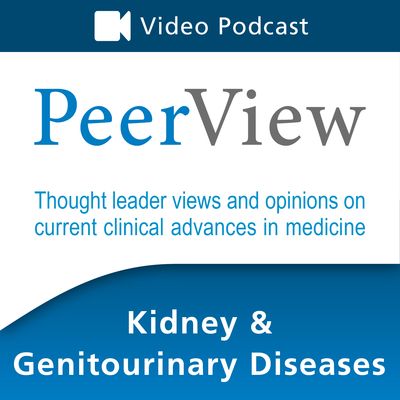PeerView (PVI) is a leading provider of high-quality, innovative continuing education (CME/CE/CPE and MOC) for clinicians and their interprofessional teams. Combining evidence-based medicine and instructional expertise, PeerView activities improve the knowledge, skills, and strategies that support clinical performance and patient outcomes. PeerView makes its educational programming and expert-led presentations and symposia available through its network of popular podcast channels to support specific specialties and conditions. Each episode includes a link to request CME/CE credit for participation. PeerView is solely responsible for the selection of topics, the preparation of editorial content, and the distribution of all materials it publishes.
http://ww2.peerview.com
Anthony R. Mato, MD, MSCE - Solving the Challenge of Tumor Lysis Syndrome: Expert Insight and Guidance on a Challenging Oncologic Emergency
Go online to PeerView.com/YSX860 to view the activity, download slides and practice aids, and complete the post-test to earn credit. Tumor lysis syndrome (TLS) is a serious and potentially fatal oncologic emergency that, paradoxically, is partially linked to the use of highly effective anticancer treatment. How can the management team rise to the challenge of TLS? In this activity, Anthony R. Mato, MD, MSCE, and Kristen Battiato, MSN, RN, AGNP-C, will provide an answer. Join them as they explore team-based management of TLS and provide guidance on developing TLS management plans. Throughout this program, the experts will use real-world case scenarios to demonstrate how professionals can work together to identify risk factors for TLS, recognize its laboratory and clinical symptoms, and prevent its occurrence. Upon completion of this activity, participants should be better able to: Determine the presence of tumor lysis syndrome (TLS) and risk status based on patient-, disease-, and treatment-related features in patients with cancer, Develop risk-based prophylactic protocols for TLS that include adequate hydration, patient assessment, and antihyperuricemic medications based on current efficacy evidence, Integrate individualized antihyperuricemic therapy into TLS management plans for patients with cancer, including administration of appropriate treatment, appropriate dosing of antihyperuricemics, and patient counseling measures.
